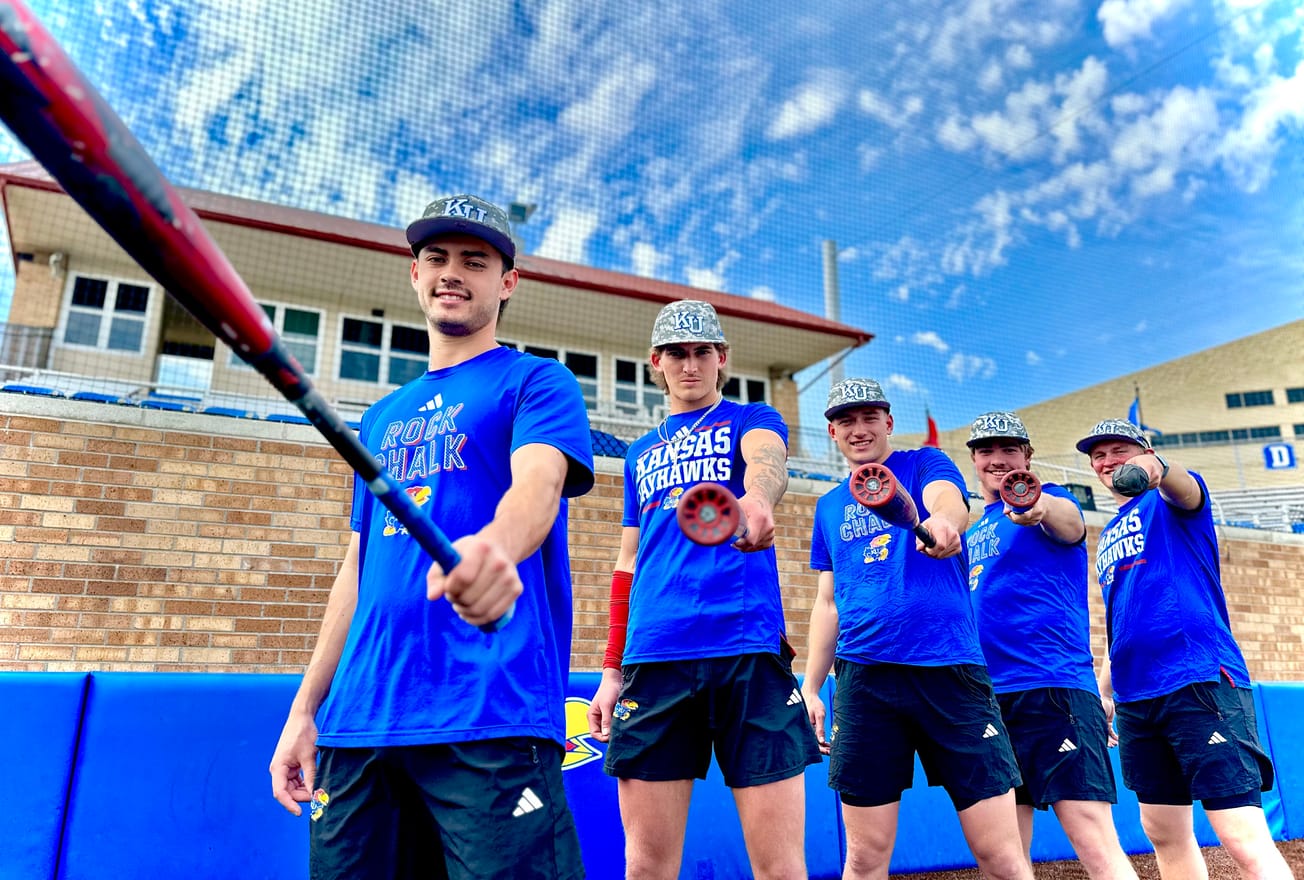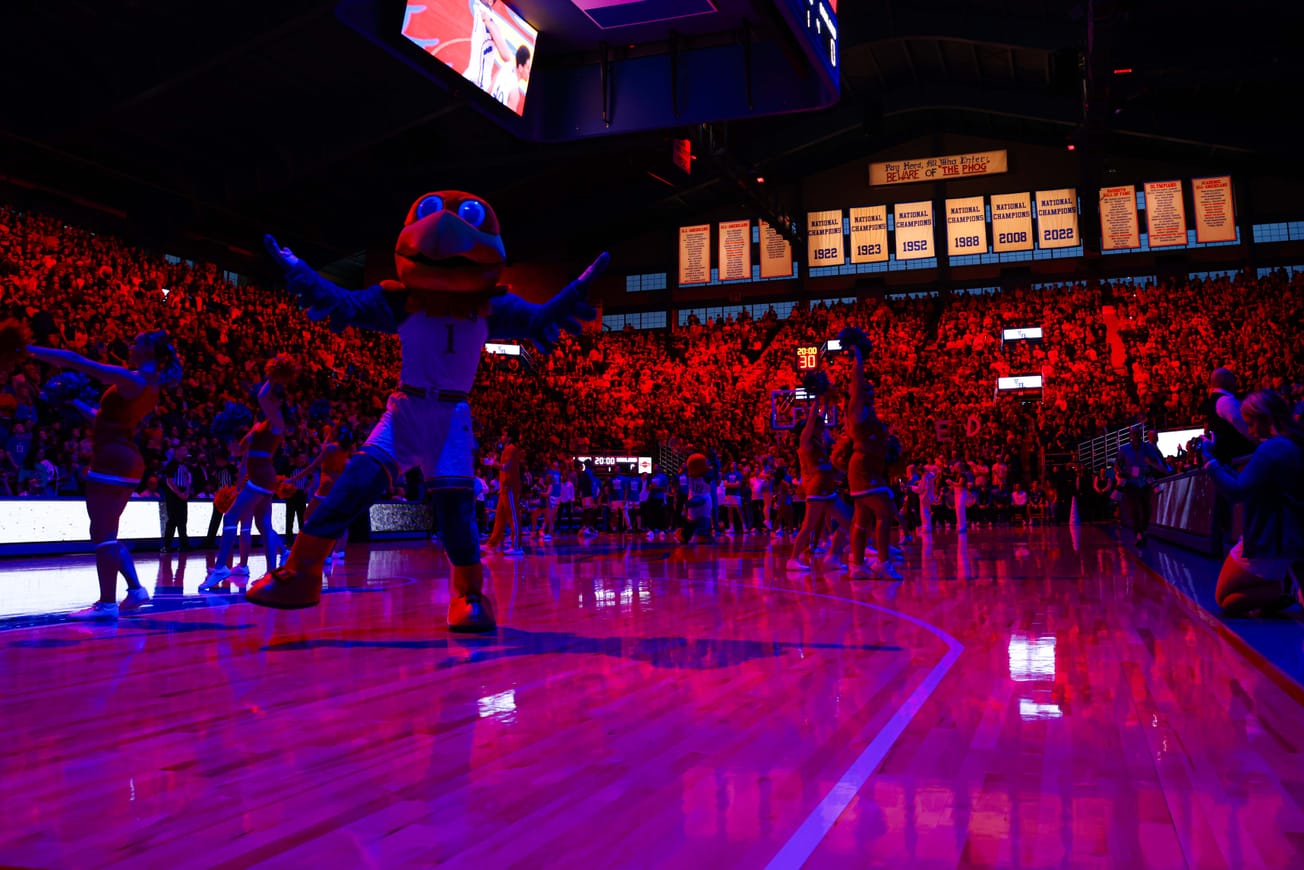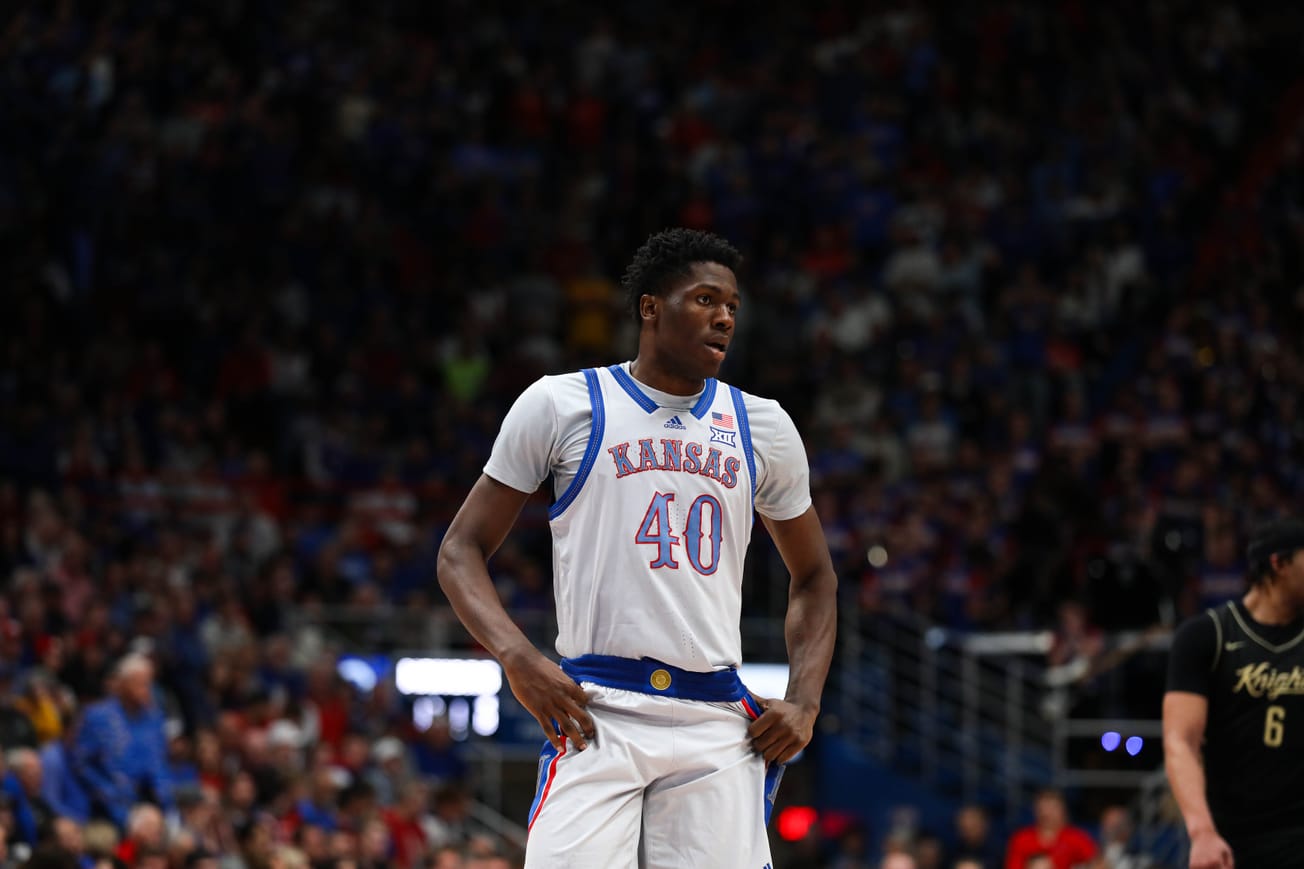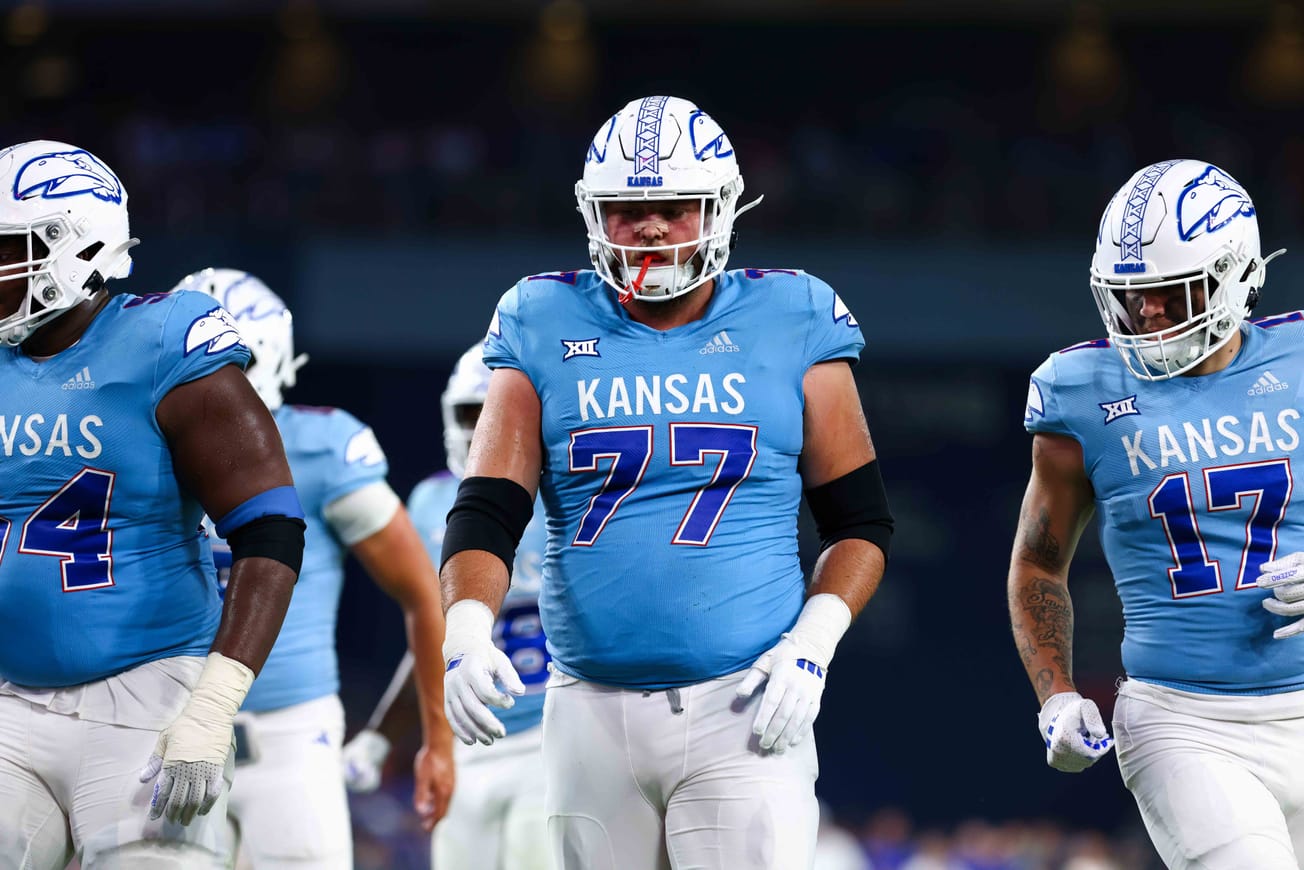They say former Kansas legend Lynette Woodard’s point total doesn’t register on the all-time NCAA Division I scoring chart because the NCAA did not officially govern women’s basketball until the 1981-82 season, one year after the end of Woodard’s stellar KU career.
Yet, we know how many points Woodard scored at Kansas.

They say that former Washington Huskies star Kelsey Plum is the current women’s Division I record holder with 3,527 points and that Iowa superstar Caitlin Clark, who is as good of a player as we’ve ever seen in the women’s game, is poised to break Plum’s record on Thursday night.
Yet, when she does, Clark will still be 100 or so points behind Woodard's major college scoring record no matter how many she scores against Michigan in Iowa City.
Fair? Definitely not.
Worth complaining about? Not if you ask Woodard.
“I think it’s great for women’s basketball, number 1,” Woodard said of Clark’s scoring onslaught in a phone interview with R1S1 Sports on Wednesday morning. “It seems like everybody’s watching, and they should be watching women’s basketball.”
What’s good for the game is good with her, Woodard said, and she continues to be thrilled by the recent growth of the sport at both the college and professional levels, with players like Clark and other college standouts, along with a handful of WNBA stars often leading SportsCenter and drawing top billing elsewhere, as well.
Others, however, believe that Woodard not being recognized by the NCAA for her stellar numbers, is not only wrong but also an inaccurate portrayal of the history of the game.

“First of all, I want to be sure to congratulate Caitlin,” legendary former KU coach Marian Washington told R1S1 Sports during a Wednesday night phone call. “She’s really brought a great deal of attention to women’s basketball. Like a lot of things, though, she stands on the shoulders of pioneers, and I think the saddest thing is that Lynette, her family and her fans never had the opportunity to really enjoy her accomplishments from her four years at Kansas because of the NCAA deciding what was and wasn’t important.”
Washington continued: “And it’s not just Lynette. The NCAA put all those athletes, prior to 1982, on the back page. They buried our history and it’s just not right. Her record has stood for 43 years and that should be celebrated. They have distorted the history of women’s basketball. And that is just unacceptable.”
The "it's not just Lynette" part of that quote is important. According to a recent Associated Press article, a woman named Pearl Moore scored 4,061 points at small-school Francis Marion University from 1975-79. More currently, Grace Beyer, a fifth-year senior at tiny University of Health Sciences and Pharmacy in St. Louis, is sitting on 3,724 career points and counting.
So, clearly, the question of who has scored the most points in women's college basketball history is not cut and dry, nor is it easy to answer without some form of explanation.
Washington, who had a backstage pass and front-row seat for the show Woodard put on at KU, has a clear connection to the former Jayhawk. But others feel the same way she does.
Stanford coach Tara Vanderveer recently told The Wall Street Journal that Woodard’s mark is “the record,” while other big-name women’s basketball coaches like former Notre Dame coach Muffet McGraw, Lark Birdsong, who was the first women’s basketball coach at Iowa, and LSU coach Kim Mulkey, also told the publication that Woodard should be viewed as the current record-holder.
An NCAA spokesperson told the Wall Street Journal that Woodard is not regarded as such because the NCAA does not recognize individual statistics that were recorded while schools were members of other associations. In Woodard's case that was the Association of Intercollegiate Athletics for Women (AIAW), which governed the sport from 1972-81.
But even that’s not entirely true.
Take Vanderveer’s case, for example. In January, she passed former Duke men’s coach Mike Krzyzewski as the winningest coach in college basketball history — and was recognized as such by the NCAA — even though 42 of her victories, during her two seasons at Idaho, pre-dated the 1981-82 season.
If its verification or validity of the records that’s the issue, Washington pointed out that, during the AIAW days, representatives from both schools had to sign the scorebook after every game.
“So, it’s all right there,” Washington said.
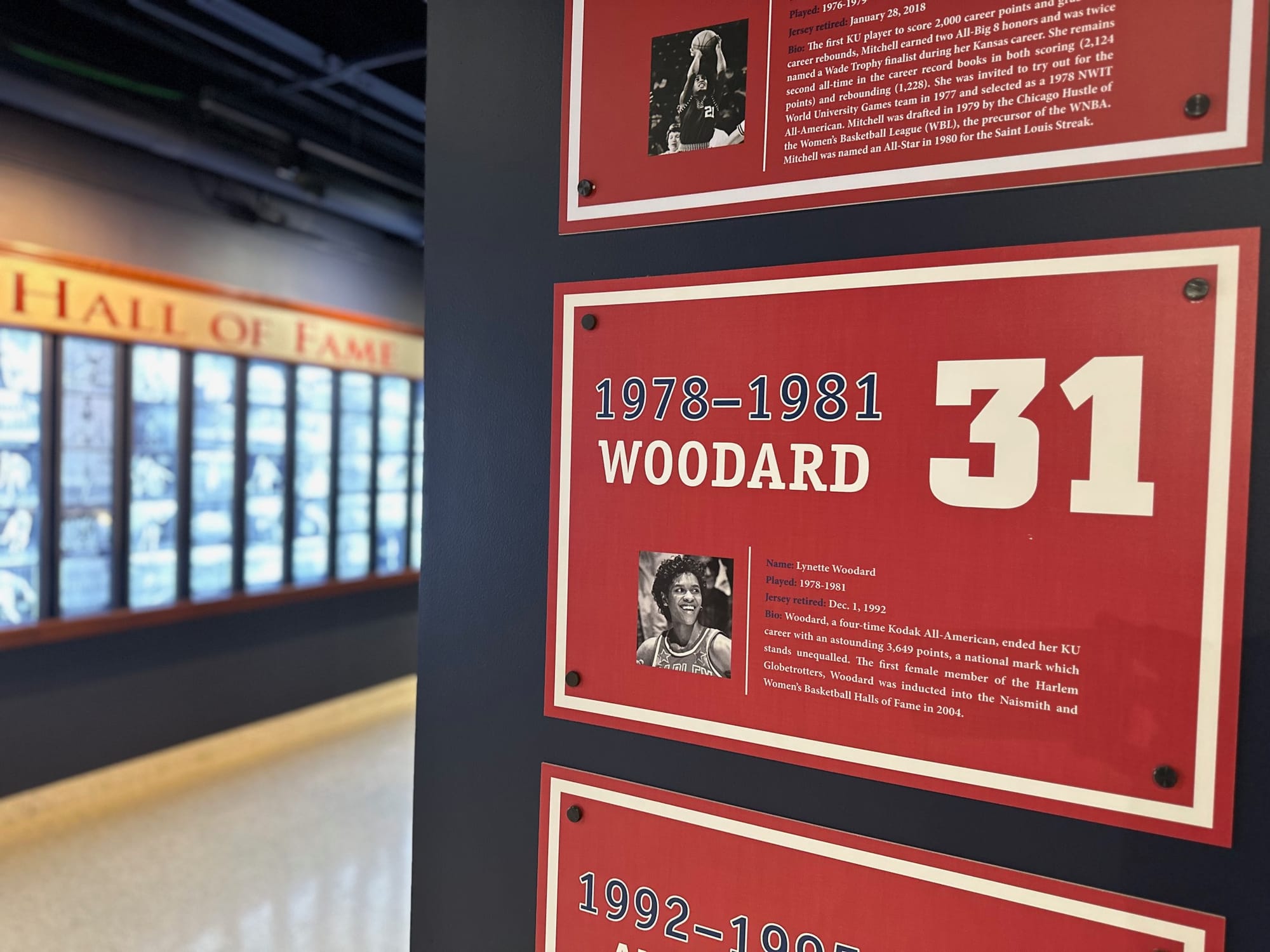
The talk about Woodard’s status at the top of the scoring charts is nothing new.
It surfaced when former Missouri State star and Kansas native, Jackie Stiles, claimed the NCAA record by scoring 3,393 career points from 1998-2001, and again in 2017, when Plum broke Stiles’ record. One year later, it was a popular topic yet again in 2018, when Ohio State’s Kelsey Mitchell pursued Plum’s mark. Mitchell finished her career with 3,402 points.
Even though Woodard’s career total is higher than all three of those marks, the fact that her points came when women’s basketball was run by the AIAW has largely kept her out of these conversations about NCAA records.
Woodard does not use the slight against her era as a reason to root against players like Clark, Mitchell, Plum or Stiles.
In fact, she views all of them — and countless others — as great ambassadors for the game she loves and said she enjoys watching and rooting for their success.
“I’m happy for the game,” Woodard said. “I’m a player. I love the game. And I love the interest that’s being built in the game because of these young women.”
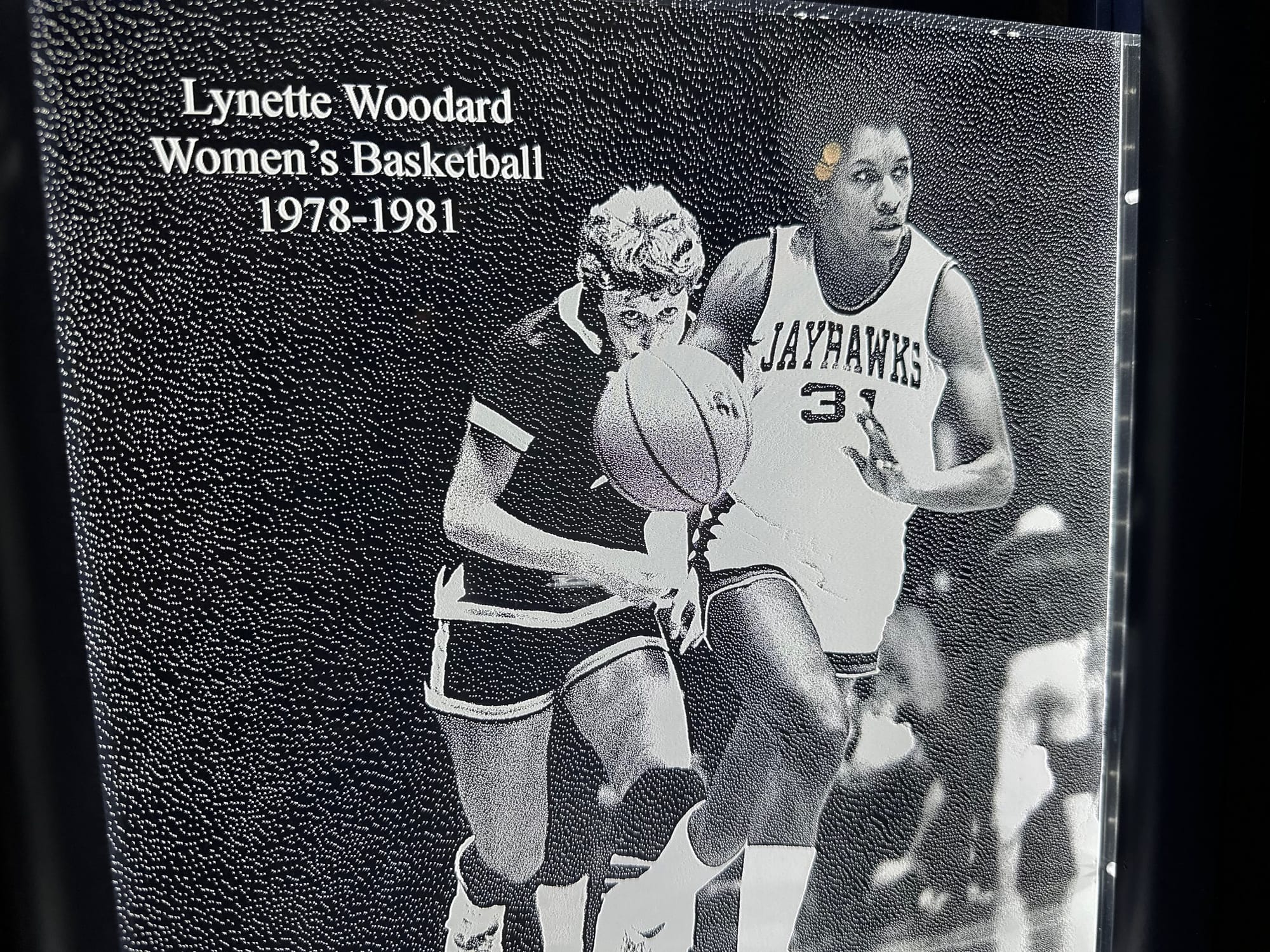
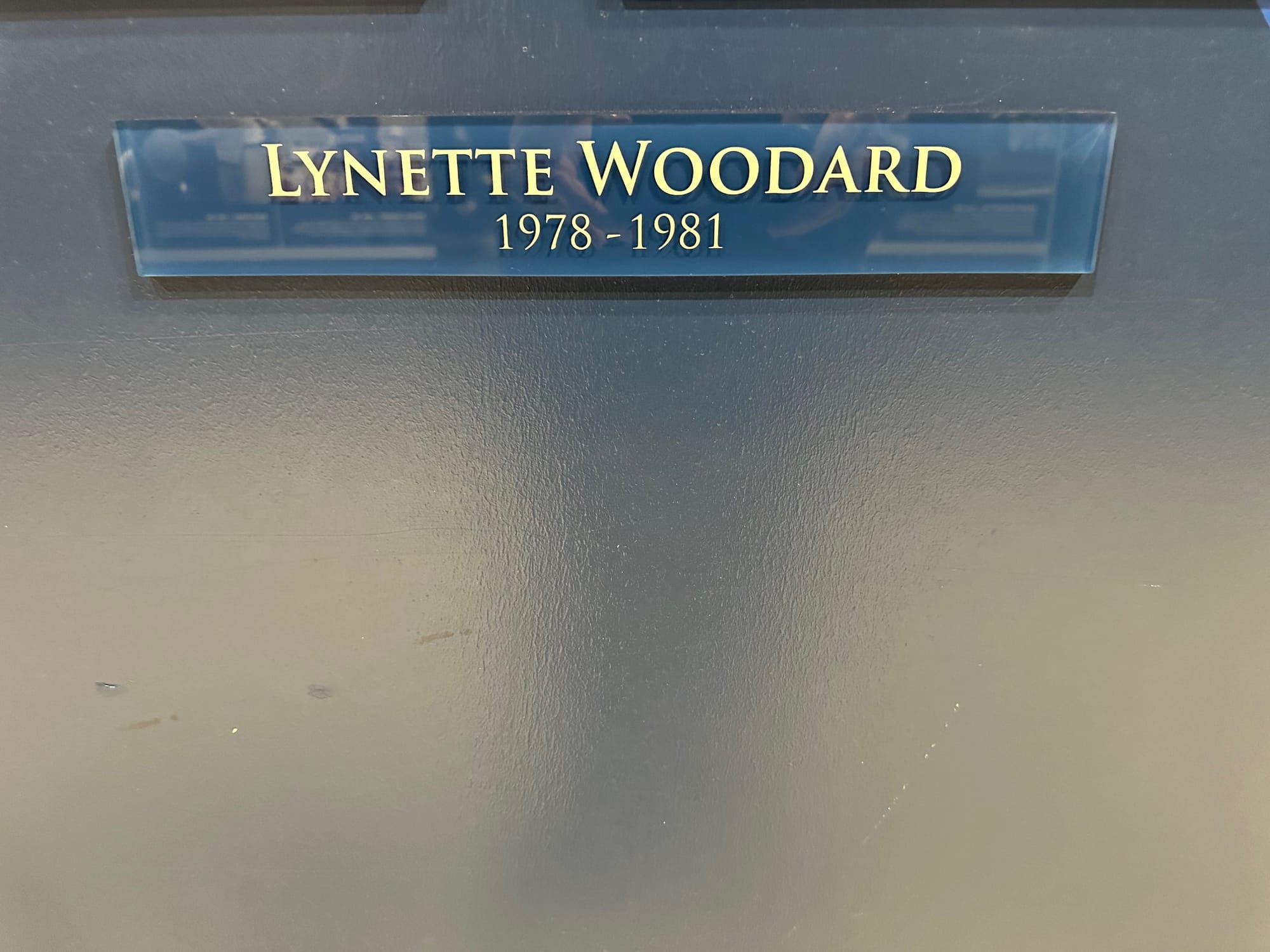
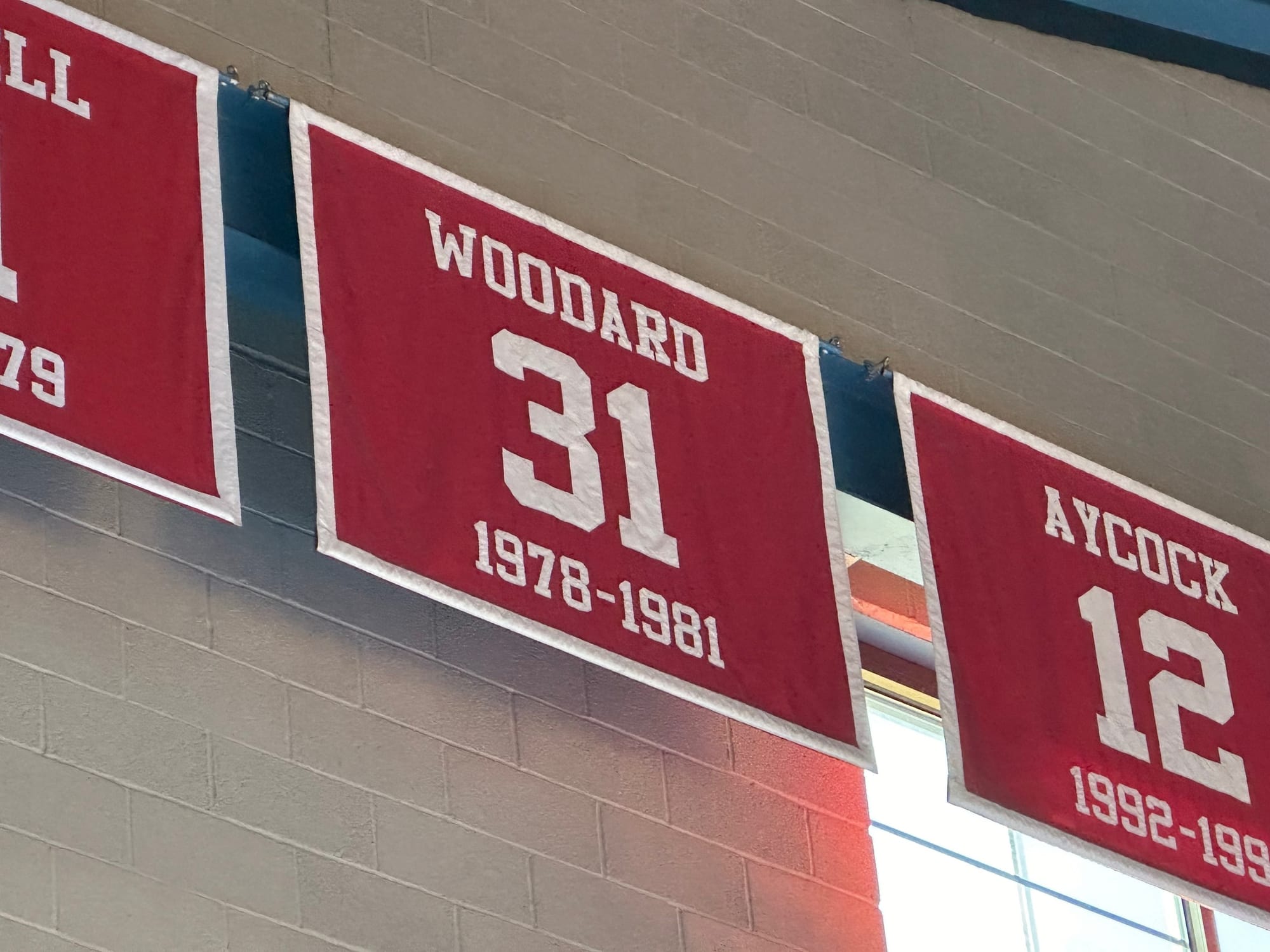
Signage and celebrations of Woodard's legacy at KU are found throughout Allen Fieldhouse. [R1S1 Sports photos]
So, too, does former KU administrator Marlene Mawson, who started the women’s intercollegiate athletic program at KU and served as head coach of four of the first six women’s programs at Kansas.
“I’m happy for these young women who have that opportunity now because it hasn’t always been there,” Mawson told R1S1 Sports. “I’m also glad that there are some people that recognize there were forerunners. These women all know about Lynette. Even though the world might not, these women do, and they recognize that it’s people like Lynette, and others, who made it possible for them to be in the position they’re in today.”
A couple of things worth noting regarding the 3,649 points that Woodard scored at Kansas:
• They came during an era that did not utilize the 3-point line.
• She also played with a bigger ball. The current women’s ball, which is roughly 1 inch smaller in diameter than a standard men’s ball, was not introduced into NCAA play until 1984.
That’s not to disparage the totals put up by the players who have sought to pass Woodard. It’s merely a reminder of how impressive the former Jayhawk's accomplishments truly were.
To date, more than 1,400 of Clark’s points have come from behind the 3-point line. Mitchell recorded 1,491 points from behind the 3-point line. Plum recorded 1,029 points from 3-point range. And Stiles scored 663 points off of 3-pointers during her career.
Woodard’s total at KU included 3,144 points on 2-point baskets and 505 points at the free throw line.
Although she’s clearly biased, Washington said the other thing that set Woodard apart was her versatility. The Wichita native and former KU great was a national leader in one or two statistical categories every year she played. In Year 1, it was rebounds. In Year 2, it was scoring. She also mixed in steals a time or two.
“If you want to talk about the GOAT, she went beyond just scoring,” Washington said of Woodard. “She played the whole game. She was a rebounder, she played defense, she led the country in steals, she was a point guard, she was a forward. I don’t know that anyone’s ever going to match her accomplishments.”
A KU video celebrating Woodard's 2015 Naismith Award as an outstanding contributor to women's basketball.
Even though Woodard’s statistics were not recognized by the NCAA, the organization quickly made it a point to honor her after taking over women’s basketball.
In 1982, Woodard became the first female recipient of the NCAA’s Top 5 Award, given to her for her contributions to the women’s game.
It was a nice gesture and one of the first honors in a career that soon would be full of them at the highest levels.
In addition to being inducted into both the Naismith Memorial Basketball Hall of Fame and the Women’s Basketball Hall of Fame, Woodard was a captain on the USA Olympic team in 1984, became the first female member of the Harlem Globetrotters in 1985 and enjoyed a nearly 10-year professional playing career that included stops in Italy, Japan and two seasons in the WNBA at the outset of the American professional league.
In many ways, Mawson said she believes that Woodard received the credit she deserved in part because of her accomplishments after her days as a Jayhawk.
But regardless of who talks about her now or how often her name is brought up in situations like the one Clark will be in on Thursday night, Mawson knows one thing is still certain about Woodard and the mark she left on the game of basketball.
“She still has the goal that they’re all shooting for,” she said.

— For tickets to all KU athletic events, visit kutickets.com






